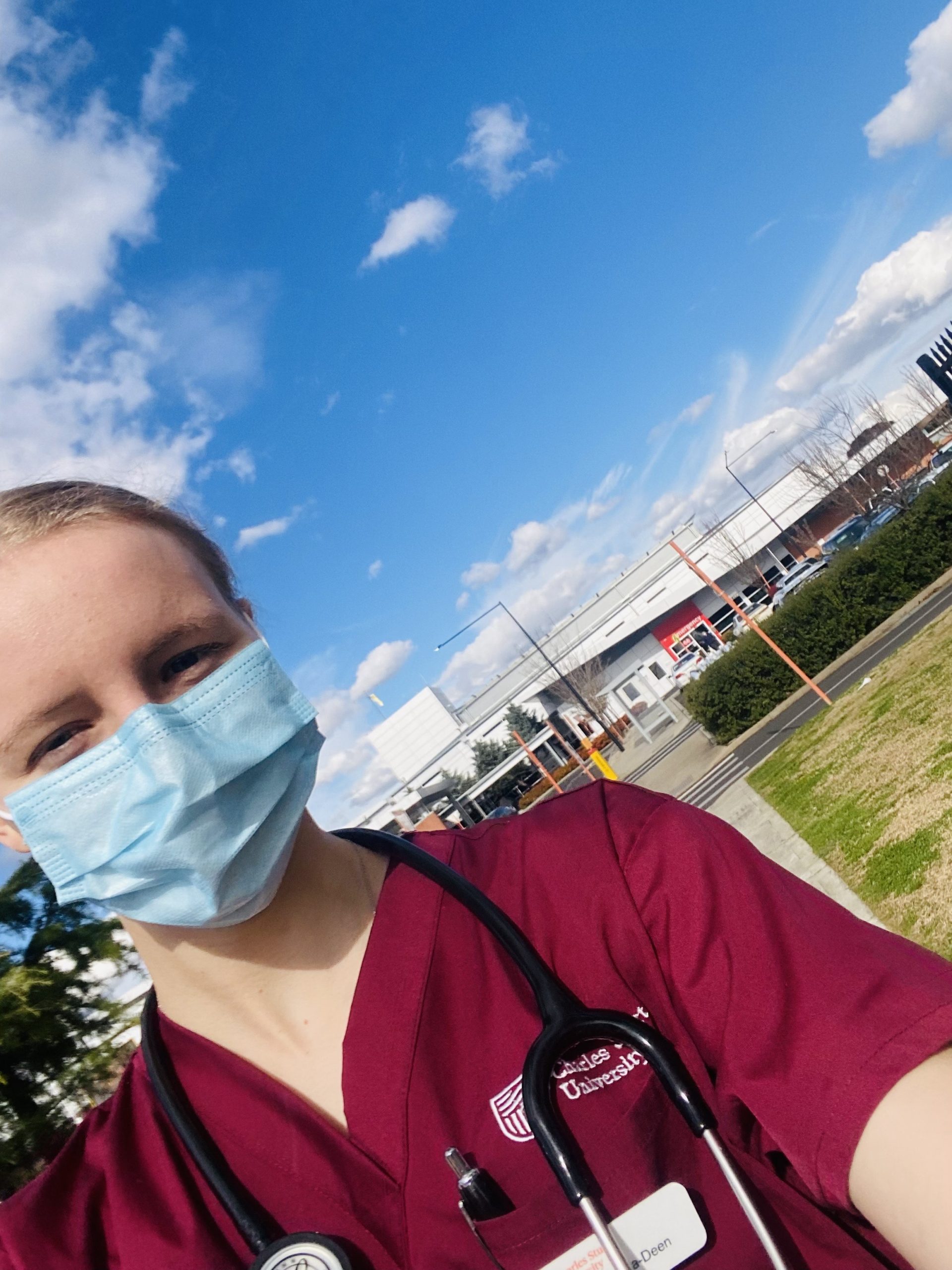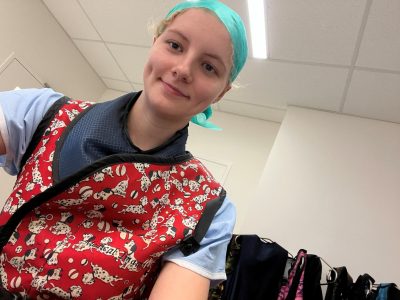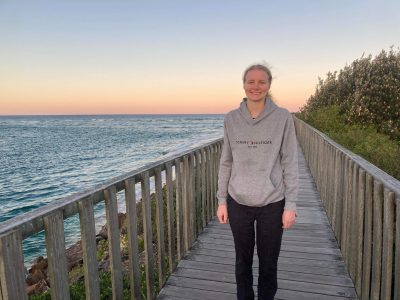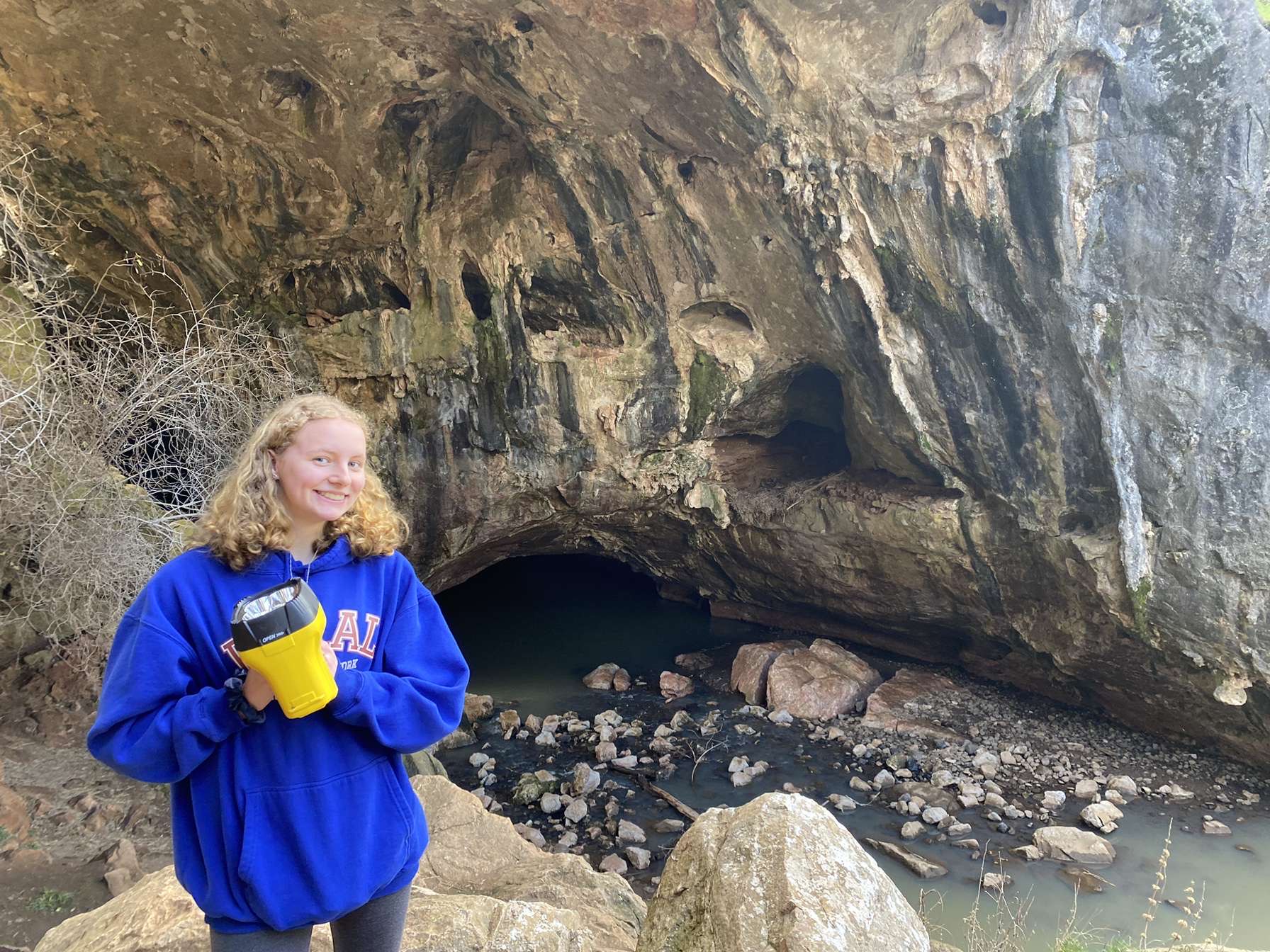To recognise National Reconciliation Week 2025, GPSN is sharing the inspiring journey of Mikayla Budda-Deen, a proud Gomeroi woman and medical student who embodies the spirit of resilience and the hope of a brighter, more inclusive future for First Nations peoples in healthcare.
From humble beginnings, Mikayla’s journey towards becoming a doctor is deeply rooted in her heritage, her commitment to community, and her unwavering belief in the power of education to drive change.
Mikayla hails from the Gomeroi people, with her family, the Budda-Deens, having lived on Gomeroi lands for generations.
She grew up in Inverell, a rural town in northern New South Wales, where her father was the first in their family to attend university.
Mikayla’s connection to her culture and her family’s support laid the foundation for her academic ambitions, which would eventually lead her to medicine.
“My father was the first in his family to go to university, and his determination inspired me,” Mikayla says.
“But it wasn’t just him – my whole family believed in the power of education and the opportunities it could open up. I wanted to make sure I used those opportunities to help my community.”
Mikayla’s path to medicine was shaped by her interest in Aboriginal studies during her high school years.
As part of her Year 12 Aboriginal Studies major project on Type 2 Diabetes in local First Nations youth, Mikayla interviewed health professionals from the Armajun Aboriginal Health Service and Inverell Community Health Service. What she learned left a lasting impression.
“I was devastated when I found out how many young kids in my area were living with Type 2 Diabetes, a condition I thought was usually found in older adults,” Mikayla recalls.
“That’s when I decided I wanted to become part of the solution to ‘Closing the Gap.’ The best way to improve health outcomes was to become a doctor.”
Mikayla’s passion for addressing health disparities in her community grew stronger, and she realised that by becoming a doctor, she could directly contribute to improving the lives of First Nations people.
Despite her determination, Mikayla faced several challenges on her journey.
She was accepted into Charles Sturt University’s First Nations pathway, which required her to leave her family and move to Orange, where she initially felt out of place.
“There were only about four students in my year who had started medicine after just leaving school, so I suddenly felt like I was behind,” Mikayla shares.
“But I was lucky to have a lot of support from my First Nations student connect tutor, Tom, and the friends I made in Orange. That support was crucial for me in those early years.”
Mikayla’s journey continued with another move to Coffs Harbour for her clinical placement in the Mid North Coast area, where she felt more confident and ready to take on the next steps of her education.
She is now in her fourth year of medical school and looks forward to finishing her degree next year.
For Mikayla, National Reconciliation Week is a time of reflection and action.
It’s a week that holds personal meaning, as it connects to significant milestones in Australia’s history, including the anniversary of the 1967 referendum and the Mabo decision.
“National Reconciliation Week is extremely important to me because Closing the Gap and reducing inequity in First Nations communities is something all Australians need to understand for us to make lasting change,” Mikayla says.
“It’s also a time to celebrate First Nations culture and the achievements of our people.”
As a passionate advocate for First Nations rights and cultural recognition, Mikayla actively participates in Reconciliation Week and NAIDOC Week events, connecting with her communities and promoting positive change.
Mikayla is determined to inspire other First Nations students to pursue careers in healthcare. Her message is clear: If you’re thinking about becoming a doctor, go for it!
“As a First Nations person, you have a unique set of skills and experience that sets you apart from your peers,” Mikayla says.
“You’ll be a great asset to your community and an inspiration to others. Don’t be afraid to ask for help when you need it, and take on opportunities while remembering to reduce your colonial burden.”
Through her work with the National Rural Health Student Network (NRHSN) as Vice Chair of First Nations, Mikayla is actively involved in initiatives aimed at inspiring and supporting First Nations students who want to pursue careers in health.
One of her key initiatives is the First Nations Future Rural Health Professional Program, which partners with Orange Aboriginal Medical Service and TAFE Orange to provide role models and guidance for First Nations school students interested in healthcare careers.
Mikayla is particularly drawn to general practice because of her desire to work in an Aboriginal Community Controlled Health Organisation (ACCHO), such as Armajun in the New England area of NSW, where she hopes to contribute to her local community’s health and wellbeing.
“I want to work in an ACCHO to make sure that we have a safe and welcoming place for everyone to feel supported on their health journey,” Mikayla says.
“I love living in rural NSW, and I hope to give back to my community by addressing health inequalities and improving access to healthcare.”
Mikayla believes that general practitioners need to be non-judgmental, patient, culturally safe, and respectful – traits that are crucial in providing holistic, patient-centred care.
As she works towards her goal of becoming a Rural Generalist, Mikayla envisions herself as a well-rounded doctor who is an asset to both First Nations people and the broader community.
In 10 years, Mikayla sees herself working on Country in an ACCHO, specialising in Rural Generalism.
Her vision is to continue being a trusted healthcare provider and advocate for First Nations communities, ensuring that all people have access to high-quality, culturally safe care.
“I hope to be a doctor who’s seen as a leader in my community – someone who can help close the gap and bring about real change,” Mikayla says.
“Being a doctor is incredibly important across the lifespan, and I feel privileged to partner with patients on their journey to better health.”
Mikayla’s journey serves as a powerful reminder of the importance of supporting First Nations students in their pursuit of a career in healthcare.
Through her dedication, advocacy, and passion for her community, Mikayla is not only paving the way for herself but also inspiring countless others to follow in her footsteps.
“Becoming a doctor is not just about helping people – it’s about making a difference. If I can do it, so can you. We need more First Nations doctors to change the system and make healthcare better for our people.”







